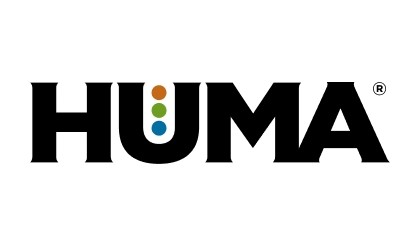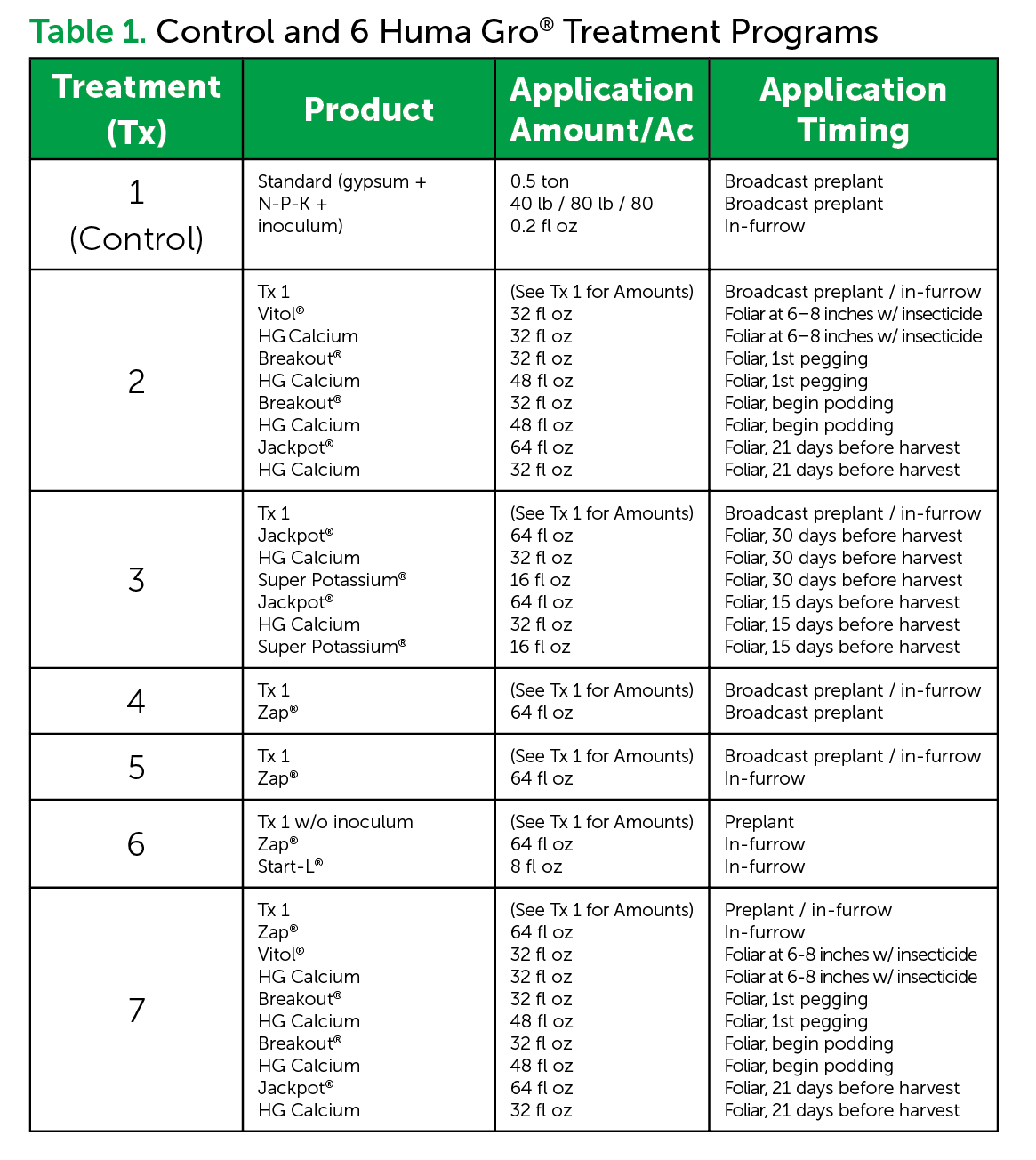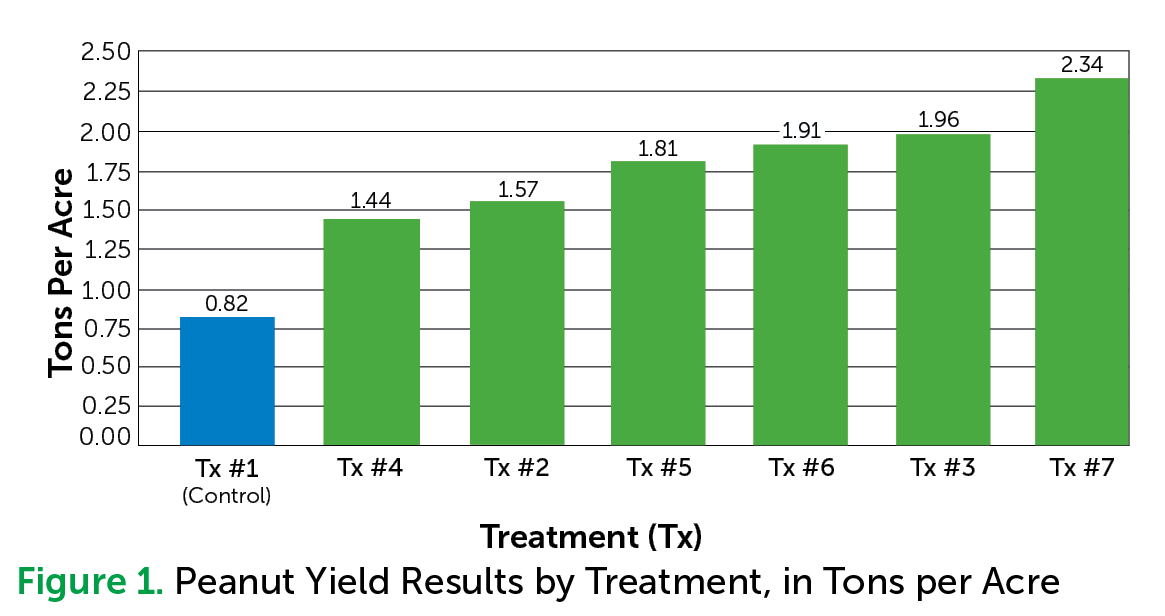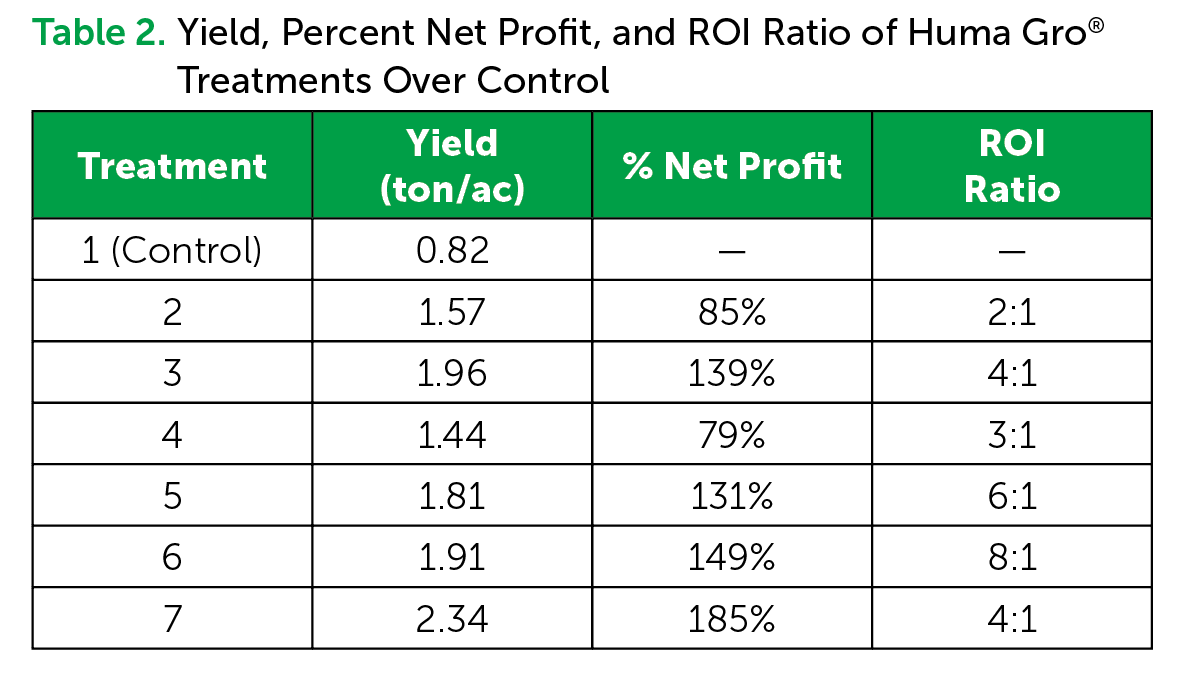Materials and Methods
This trial on peanut (Arachis hypogaea, Var. GA-12Y) was conducted in Memphis, Tenn. by AgriCenter International, as a randomized complete block study with 4 replications in 12.6’ x 30’ plots. The peanuts were planted on June 25 and harvested on December 14. Seven treatment programs were compared as shown in Table 1.
Results
All the Huma Gro® treatments yielded significantly higher than the grower standard (Control). Treatment 7 resulted in the highest yield (2.34 ton/acre) compared with the Control (0.82 ton/acre), with Treatment 3 next highest at 1.96 ton/ac. The average rainfall in Tennessee ranged from 20% to over 40% higher in 2019 than 2018. Generally, the average peanuts yield for the southern region is about 2 ton/acre. However, due to unfavorable weather conditions in the area the overall yield production was lower than normal for the Control treatment at 0.83 ton/acre. It is noteworthy that Treatment 7 (2.34 ton/acre) yielded 17% higher than the normal regional average peanut yield (2 ton/acre).
Based on a peanut market price of $440/ton, Table 2 shows yield and net profit, along with the return on investment (ROI) ratio, for the 6 treatments over the control. Treatment 7 showed the highest percentage of yield increase over the control (185%). An ROI ratio of 8:1 occurred for Treatment 6.
Conclusions
Micro Carbon Technology® in Huma Gro® soil and foliar products contributed to significant peanut yield and revenue increases in all the Huma Gro® treatments evaluated in this study. Though adding Huma Gro® products increased initial costs, the greater yields and net profits generated by the treatments resulted in a return on investment that paid for the cost and application of the Huma Gro® products many times over ($2–$8 dollars returned for every $1 spent).
Click here to view/download the complete report.
Related Posts

PROMAX® and PROUD 3® Video Testimonial from the Philippines
Roy Candelaria—representing Oracle Chemical Corporation in the Philippines—talks about his company being a pioneer in the organic movement and the important role played by Huma Gro® PROMAX® and PROUD 3®, particularly in the management of nematodes and clubroot (Plasmodiophora brassicae). “We have found no other existing products that can match Huma Gro®; the products are...

The Huma Gro Farmer Podcast: Episode 4 – Soil Biology and Soil Health with Promax®
By Jael Batty In Episode 4 of The Huma Gro Farmer podcast, we discuss Soil Biology and Soil Health with Promax®. Promax® is an OMRI-listed organic pesticide that kills soil pathogens and nematodes. Join us as we discuss crop protection with our experts, Bio Huma Netics, Inc. President and CEO Lyndon Smith, and Eastern U.S....

BHN R&D Director Appointed to EPA Agricultural Science Committee
Rita Abi-Ghanem, PhD, Senior Director of Research & Development at Bio Huma Netics, Inc. (BHN), has been appointed to a 2-year term to serve as a member of the Agricultural Science Committee of the U.S. Environmental Protection Agency’s (EPA’s) Science Advisory Board (SAB). Her term begins on October 1, 2016. The EPA SAB Agricultural Science...




